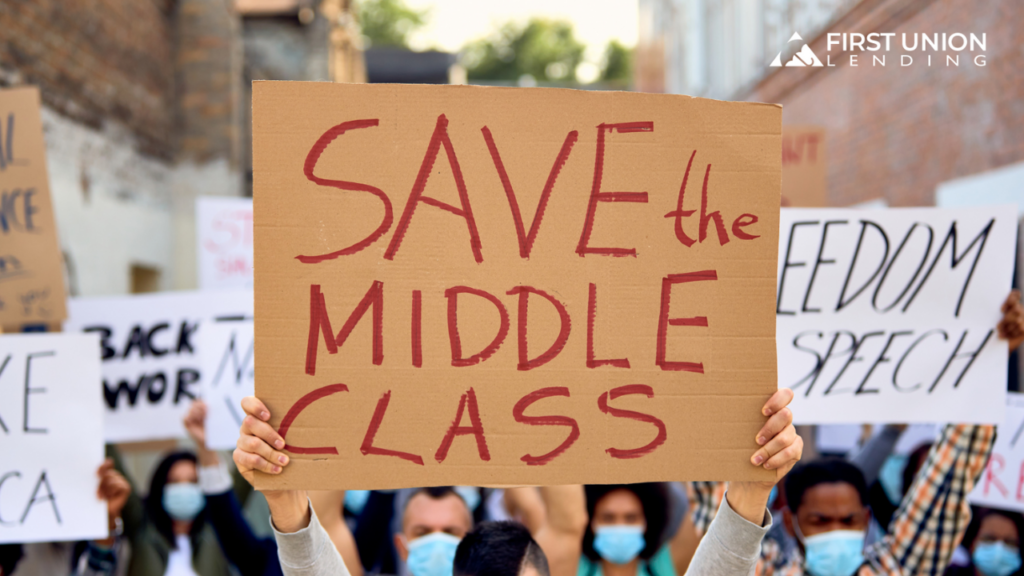
The Middle-Class Crunch
Consumers earning between $50,000 and $100,000 annually find themselves in a unique predicament, often called the middle-class income “crunch”. This situation arises from a combination of factors, including slower inflation growth, stagnant real wages, and the inability to qualify for assistance programs or maintain substantial savings. This group of consumers is making ends meet, primarily staying afloat by paying their bills and living paycheck-to-paycheck. Additionally, an alarming 46% of these middle-income consumers live in this precarious financial state.
Housing Prices and Financial Well-being
One of the main contributors to this paycheck-to-paycheck existence is the escalating cost of housing. With inflation driving up prices, housing has become a significant financial burden. Previous PYMNTS research noted that monthly rent has negatively impacted the finances of 27% of middle-income consumers. Additionally, 14% of this demographic experiences similar effects due to their monthly mortgage payments.
Retail Spending Pullback
These financial difficulties have repercussions for retailers as well. Data from the “Consumer Inflation Sentiment Report” by PYMNTS indicates that 73% of middle-income consumers reduced their spending on retail products, and 60% pulled back on groceries. This is a significant behavioral shift, reflecting the financial strain these consumers are experiencing.
Shifting Consumer Habits
Due to rising prices, 16% of middle-income consumers have switched to different merchants. This move is their most substantial change in response to increased costs, as found by PYMNTS. Without any assistance or financial buffer, these consumers are caught in a unique financial squeeze reflected in their changing spending habits.
Consumer Spending Habits in 2023
Despite these challenges, specific spending trends are expected to rise in 2023. Consumers are projected to spend more on travel, clothing, beauty, electronics, dining out, housing, and household fuels. There’s also an increasing focus on durability and sustainability. Consumers seek long-lasting, multi-purpose products and are willing to pay more for sustainably produced goods.
In 2023, 74% of consumers expressed concern about the rising cost of everyday items and their financial situation. Despite a 1.6% annual growth rate in consumer spending in the second quarter of 2023 and a year-over-year increase of 2.3% to $14.42 trillion, consumer spending is lower than a year ago.
Until there’s a more significant shift toward economic stability, middle-class income consumers may be stuck in this financial crunch for the foreseeable future.
Empowering Businesses to Thrive
First Union Lending provides an invaluable lifeline for business owners navigating through economic challenges or seeking to capitalize on new opportunities. Offering fast, flexible access to capital, First Union Lending aids entrepreneurs in overcoming financial hurdles and fostering growth.
In tough economic times, liquidity is often the key to survival. First Union Lending offers various loan options to meet diverse business needs. Whether a short-term cash flow issue or a long-term financial crunch, the company provides rapid access to funds, ensuring businesses can operate smoothly.
First Union Lending isn’t just about weathering the storm. For businesses eyeing expansion, additional capital can be the catalyst that transforms ambition into reality. Whether investing in new equipment, hiring staff, or entering new markets, First Union Lending provides the financial boost necessary to take businesses to the next level.
First Union Lending is more than a lender; We’re a partner committed to business success. Through accessible capital, tailored loan options, and a swift application process, it empowers businesses in all economic climates.
